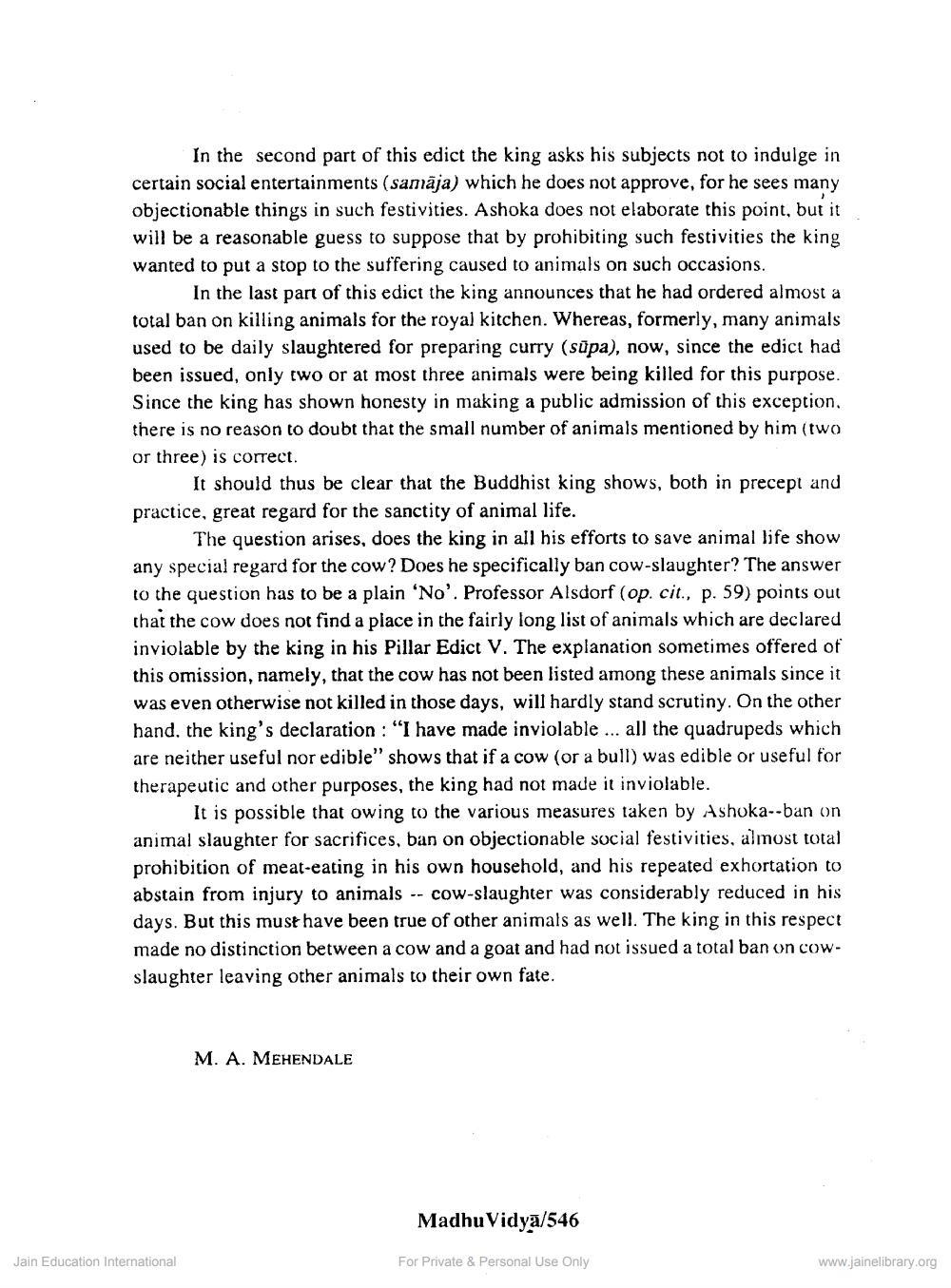________________
In the second part of this edict the king asks his subjects not to indulge in certain social entertainments (samāja) which he does not approve, for he sees many objectionable things in such festivities. Ashoka does not elaborate this point, but it will be a reasonable guess to suppose that by prohibiting such festivities the king wanted to put a stop to the suffering caused to animals on such occasions.
In the last part of this edict the king announces that he had ordered almost a total ban on killing animals for the royal kitchen. Whereas, formerly, many animals used to be daily slaughtered for preparing curry (supa), now, since the edict had been issued, only two or at most three animals were being killed for this purpose. Since the king has shown honesty in making a public admission of this exception. there is no reason to doubt that the small number of animals mentioned by him (two or three) is correct.
It should thus be clear that the Buddhist king shows, both in precept and practice, great regard for the sanctity of animal life.
The question arises, does the king in all his efforts to save animal life show any special regard for the cow? Does he specifically ban cow-slaughter? The answer to the question has to be a plain 'No'. Professor Alsdorf (op. cit., p. 59) points out that the cow does not find a place in the fairly long list of animals which are declared inviolable by the king in his Pillar Edict V. The explanation sometimes offered of this omission, namely, that the cow has not been listed among these animals since it was even otherwise not killed in those days, will hardly stand scrutiny. On the other hand, the king's declaration : "I have made inviolable ... all the quadrupeds which are neither useful nor edible" shows that if a cow (or a bull) was edible or useful for therapeutic and other purposes, the king had not made it inviolable.
It is possible that owing to the various measures taken by Ashoka--ban on animal slaughter for sacrifices, ban on objectionable social festivities, almost total prohibition of meat-eating in his own household, and his repeated exhortation to abstain from injury to animals -- Cow-slaughter was considerably reduced in his days. But this must have been true of other animals as well. The king in this respect made no distinction between a cow and a goat and had not issued a total ban on cowslaughter leaving other animals to their own fate.
M. A. MEHENDALE
Madhu Vidya/546
Jain Education International
For Private & Personal Use Only
www.jainelibrary.org




